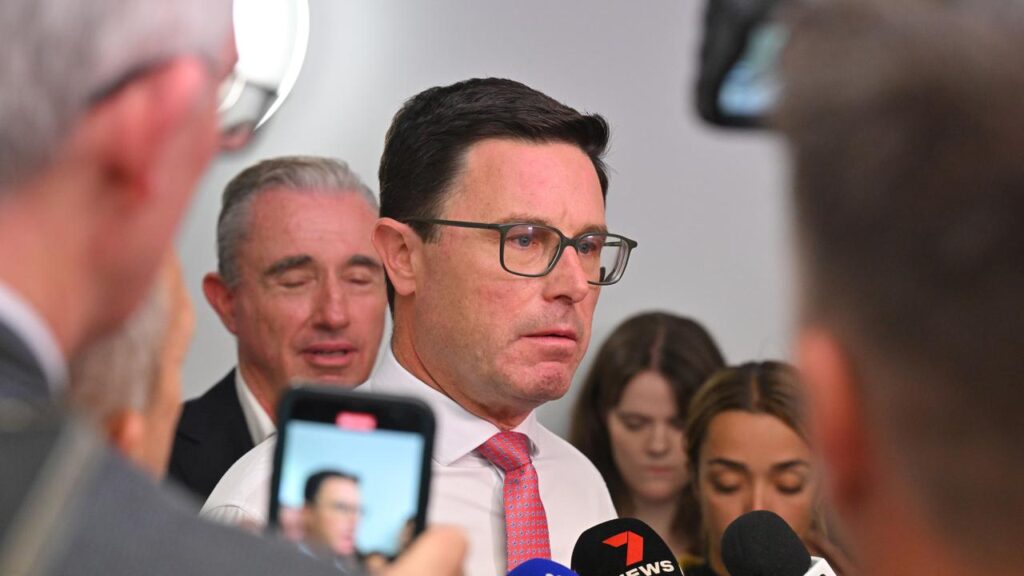Fractured coalition to unveil key roles after reunion
Kat Wong and Dominic Giannini |

Questions are being raised about how a fractured coalition will hold the government to account as a reunion takes shape.
Liberal leader Sussan Ley and Nationals counterpart David Littleproud spoke on Monday as the pair negotiate a fresh coalition agreement.
A joint shadow cabinet will be announced in coming days after the Nationals walked back a threat to abandon the long-standing partnership.

But with tensions remaining between the two parties, independent MP Allegra Spender questioned how the coalition could form an effective opposition to hold the government to account.
“With the coalition in such disarray, I think you’ll see more and more of that actually coming from the crossbench,” she told Nine’s Today Show.
The Liberals had shown a willingness to surrender to the Nationals’ demands, Ms Spender said, raising questions about what the party stood for.
“It feels incredibly one-sided,” she said.
“For the Nationals to get all their political demands … sort of being the tail wagging the dog, it seems once again that’s what we’ll see.”
Liberal senator James Paterson said maintaining a coalition was better to hold a Labor government to account while the parties were in opposition.
“It’s been a little bit messier and a little more public than we would have preferred but I’m now very confident we’re going to land in the right place, which is a strong coalition agreement between the Liberal and National parties,” he said.

Liberal senator Dave Sharma agreed a coalition was best, saying there would always be policy contention when a political movement aimed to represent a broad base, such as rural, regional and urban Australia.
“But it’s important for us as the coalition to make sure we deal with those internally and have those discussions internally and present, as much as possible, a united front to the Australian people,” he told Sky News.
The parties reunited after the Liberal party room gave in-principle support to four policy demands from the Nationals.
They included a recommitment to nuclear energy, a regional investment fund, powers to break up big supermarket chains and universal telecommunications coverage.
The Liberals, still reeling from their worst election defeat since World War II, had initially wanted to wait before committing and put every coalition policy up for review.
Free market Liberals were wary about divestiture powers used as a big stick to threaten supermarkets as they pushed for less regulatory burden.
While negotiations are nearing completion, the political turmoil hasn’t ended with two former Nationals leaders agitating about Mr Littleproud’s leadership.
Michael McCormack, one of several Nationals MPs who didn’t support the coalition break-up, criticised the decision to leave so soon after the election defeat on May 3.
“Decisions made in haste are not decisions that are well considered, well thought through, pragmatic and practical in the cold light of day,” he told AAP.

But other Nationals say the decision was on Ms Ley’s timeline as she pushed for an early resolution and noted Mr Littleproud walked away from the coalition with the broad support of his party room.
Barnaby Joyce – who rolled Mr McCormack for the top job in 2021 – has also refused to defend Mr Littleproud’s leadership.
The pair worked backroom channels to bring the coalition back together, having both been in line for demotion from their shadow portfolios.
Mr Joyce branded the break-up “remarkably stupid” but ruled out his own leadership tilt.
AAP